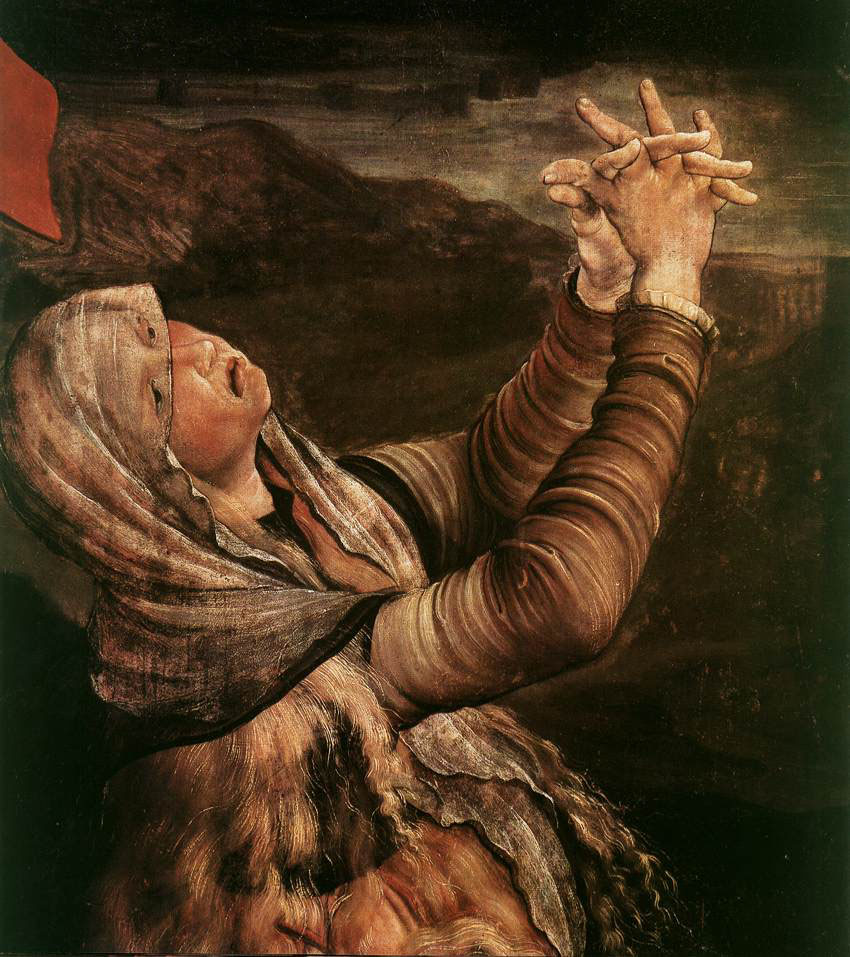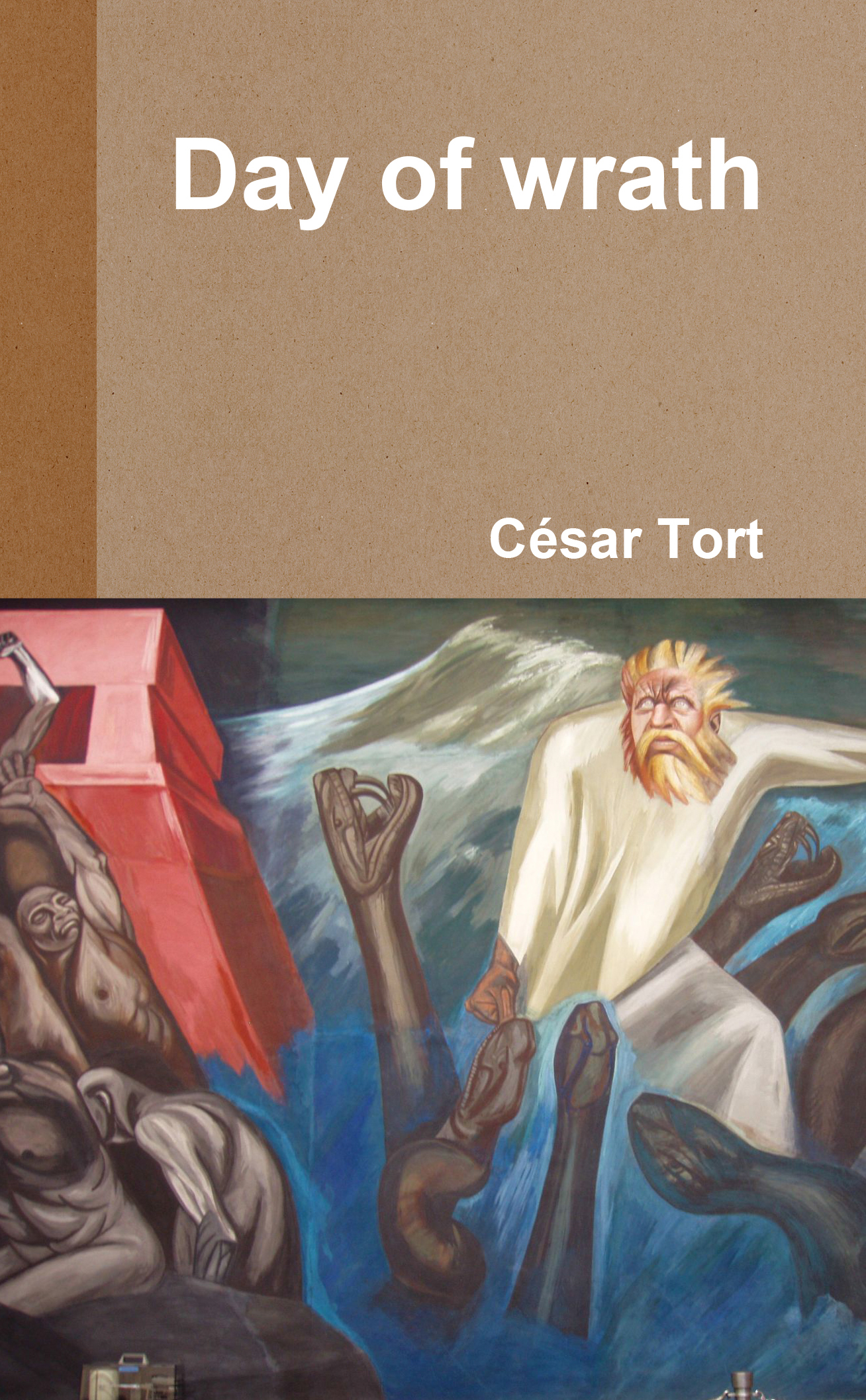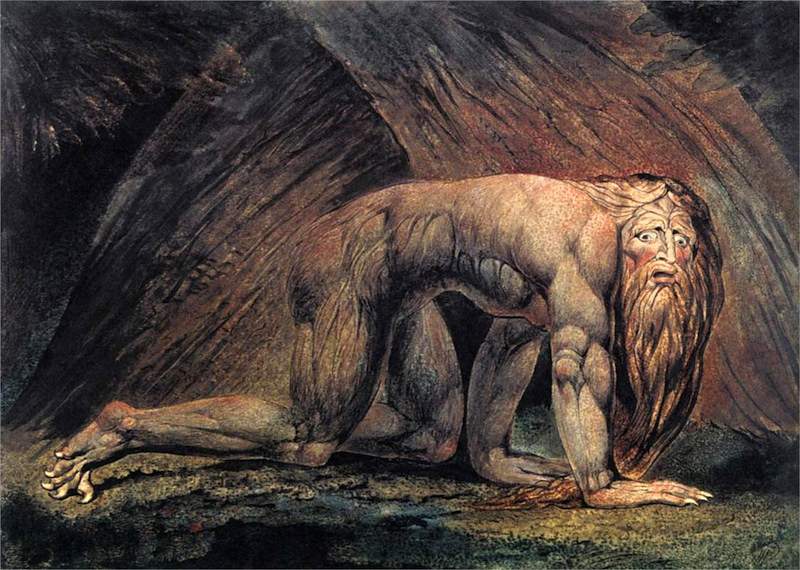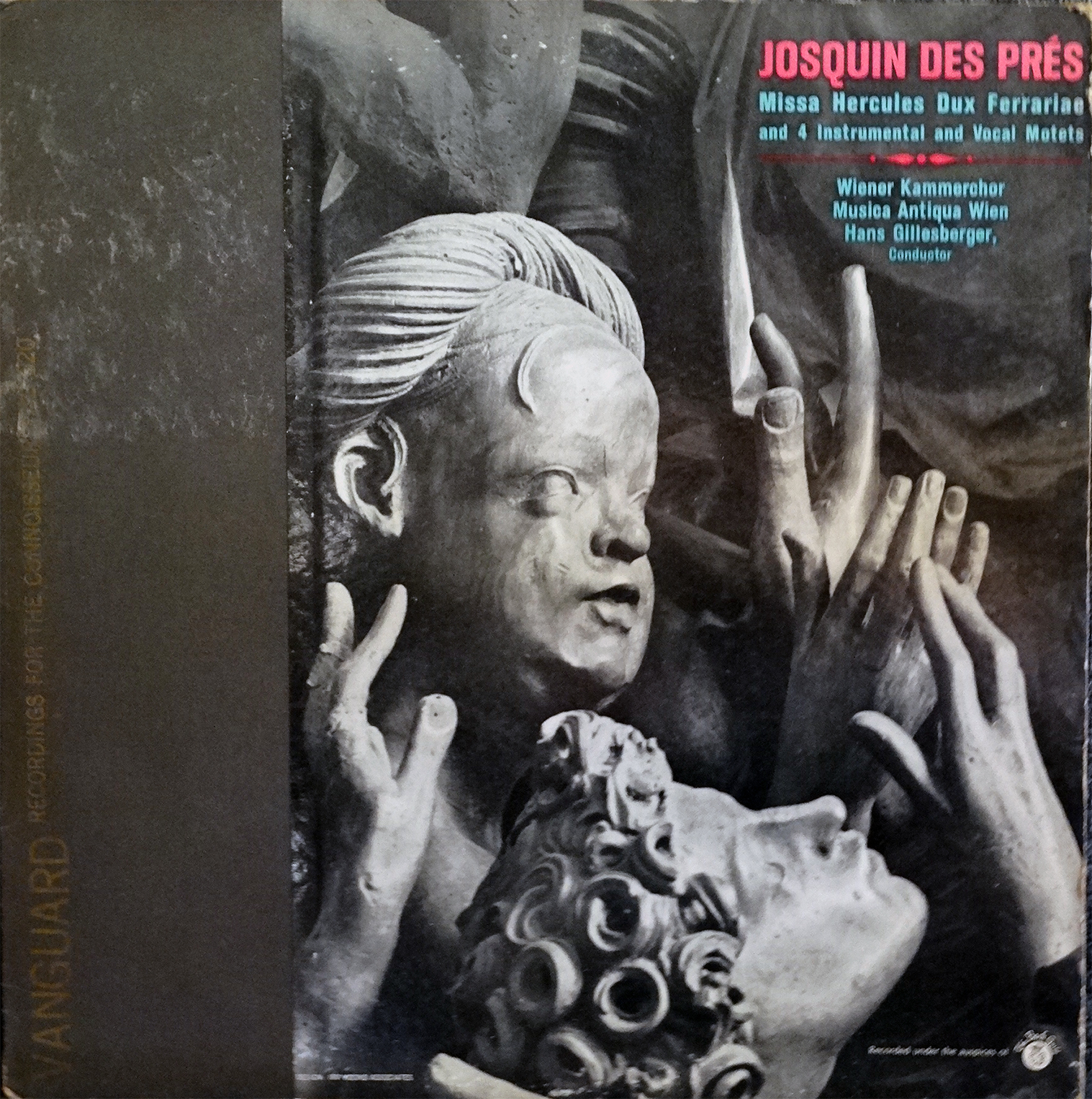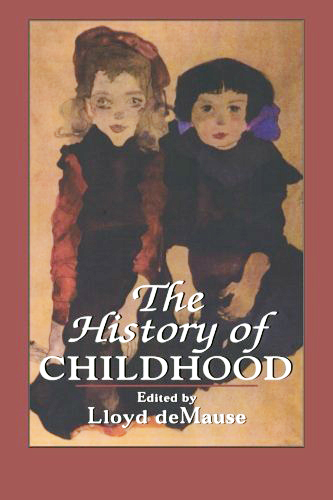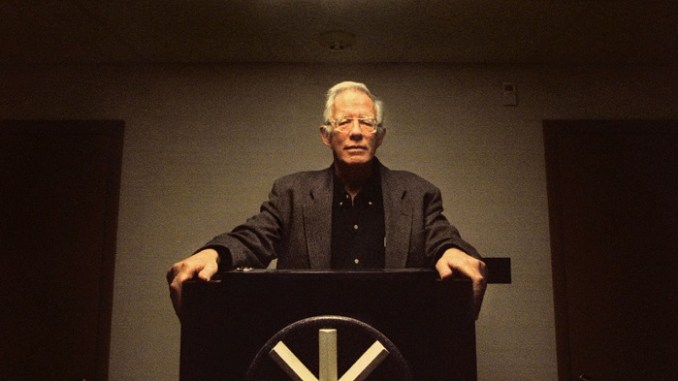Editors’ Note: Always keep in mind the fact
that Ambrose was non-white.

Saint Ambrose drives the annihilation of the Goths, 1
The Goths saw in their bishop Ulfilas, born about 311 of Gothic parents of Cappadocian descent, a ‘sacrosanct man’. He would write on his deathbed: ‘I, Ulfilas, bishop and confessor’, an honorary title that is related to the persecution of the Christian Goths, probably in 348. However, like him, only in Arianism did he see the una sancta; in all others, Christians antichrists, in their churches he saw ‘synagogues of the devil’ and especially in Catholicism a ‘lost theory of evil spirits’. Bishop Ambrose, for his part, believed that the fact that they did not accept salvation by the cross but only in imitation of Christ, whatever they understood by it, constituted ‘The most outstanding characteristic of Gothic Arianism’ (Giesecke). [1]
Even when commenting on the Gospel, Ambrose could quote praisefully the words of Paul, an even greater abominator: ‘Love is patient, it is kind, it does not show zeal, it does not boast’. He could let the imagination run: ‘But would not it be wonderful to offer the other cheek to the one who hits you?’ However, in reality Ambrose did not offer one cheek or the other, as he incited with especially Christian (and Pauline) consideration: ‘Is it not achieved with patience to return the blows twice [!] to the one who hits, in the form of the pain of the repentance?’ [2]
About our saint it is significant that he often speaks of the love of his neighbour and that he even approaches the subject as a whole in his monograph, De officiis ministrorum, but apparently only alludes to the love of enemies. For him—the same for Augustine and the whole Church—it was not useful, but only a sign of the greater perfection of the New Testament against the Old. However, this does not imply any binding requirement for Ambrose. What he rather does is ‘curiously not to reject anywhere war, categorically, as illicit’ (K.P. Schneider). On the contrary! The idea of a ‘justified war’ is constantly and ‘indirectly’ sketched by him. [3]
And not only indirectly, because while in the East the philosopher and educator of Princes, Themistius, who stood by several emperors and never adhered to Christianity, tried to mediate between the ecclesiastical parties and also between pagans and Christians (and, at the same time, vigorously supported the policy of a peaceful compromise between the Goths and Valens), St. Ambrose did just the opposite. As soon as he could, he sent his 19-year-old protégé Gratian in the name of Jesus against the Goths, the pagans, the ‘heretics’, the ‘barbarians’. [4]
The bishop did not cease to show passion. ‘There is no certainty from where they will attack the faith’, he exclaimed, angered before the emperor.
Raise up, O Lord, and unfold your standard! This time it is not the military eagles that lead the army and it is not the flight of the birds that directs it; it is your name. Jesus is the one who is cheered and it is your cross that goes before them… You have always defended it against the barbarian enemy; now take revenge!
Although he should not take revenge precisely in the name of Jesus! However, Ambrose took as a reference—as the clergy have done in all wars to date—the Old Testament: where Abraham, with a few men, annihilated numerous enemies; where Joshua triumphed over Jericho.
The Goths are for the saint the Gog people (‘Gog iste Gothus est’), whose annihilation predicts the prophet, de quo promittitur nobis futura victoria: a people that Yahweh, in his lapidary style, wants to ‘give to devour’ to raptors and other animals, and also to their own: ‘And you must eat the fat until you are fed up and drink blood until you get drunk of the victim I sacrifice for you’. According to Ambrose, for whom ‘Germanic’ and ‘Arian’ (or ‘Roman’ and ‘Catholic’) were almost equivalent terms, to defeat the Goths one thing is needed: true faith! This, in spite of the fact that the emperor of the East, Valens, was Arian! But the bishop conveniently ignored these facts. Faith in God could not be separated from fidelity to the Empire. ‘Where fidelity to God is lost, the Roman State is also broken’. Where the ‘heretics’ appeared, they were followed by the ‘barbarians.’ [5]
Of course, the military aspect was accompanied by an aspect of ecclesiastical politics. However, in occupied Illyria, that is, near northern Italy and Milan, in addition to the war with the outside adversary, the internal enemy—the disputes with the Arians—also wreaked havoc. Secundianus resided in Singidunum as bishop, Palladio in Ratiaria, Julian Valens in Poetovium, Auxentius in Durostorum, but Ulfilas also lived there, who displayed his activity mainly in the eastern provinces of the Danube. Ambrose incited the emperor against these influential Christians, especially when the Illyrian Arians made propaganda also in Milan and other cities in northern Italy, and the entry of Goths gave new impulses to the ‘heresy’. Thus, this Catholic did not cease to invoke the religious situation and the performance of the Arians as a danger to the Empire and to military security, which would provide the ‘heretical’ subjects with a protection against the Goths, their fellow believers, much smaller than the Orthodox. [6]
Nevertheless, it is evident that the military aspect was now more important for Ambrose than the religious one that he highlights, insofar as his diocese was not far from the Goths and in Roman Christianity, according to an ancient tradition, the same distinction was done among Romans and ‘barbarians’ as between human beings and animals. The danger arose from the enemies of the country. Thus, the religious zeal of the bishop is now anticipated by the national zeal. Ambrose especially emphasised the propensity to a vice of the ‘barbarians’, their depravity ‘worse than death’.
For him, the unquestioning patriot, the enemy is also any ‘stranger’, an ‘alien’ almost equivalent to infidel. To the Goths and the like (Gothi et diversarum nationum viri) he calls ‘people who once dwelt in wagons’, beings more fearsome than the gentiles (gentes). Thus, he does not fight the infidel Romans; what he does rather is to place the army of the pagans on his side and incite it against the ‘barbarians’, and to win over the emperor with pretexts of religious motives, while seeking the predominance of ‘Roman culture’, which he himself provides protection and a very prestigious life. [7]
________________
Note of the translator: The footnotes still lack the general bibliography, which will be ready as I finish the abridgement of this first volume.
[1] Jord. of orig. act Get 25. Soz. e.h. 2.6. Philostorg. e.h. 2.5. Basil ep. 164.2. Lex dtv Antike, Religion 1176. Seeck, Untergang V 90. K.-D. Schmidt, Die Bekehrung 216 f, 231 f, 236 f, 257 (here citation). Giesecke, Die Ostgermanen 6 f, 16 f, 44, 69. Thompson, Christianity 69 f. K. K. Klein, Gotenprimas Wulfila 84 f, especially 98 f. Previté-orton, The shorter 56. Claude, Die Westgoten 11 f, 26 f. Aland, Glaubenswechsel 58. Klein, Constantius II, 253 f.
[2] Ambros. Lukaskommentar 5,73 f.
[3] Schneider, Liebesgebot 27 f, 56.
[4] Pauly V 677 f. Straub, Regeneratio 203 f. Wolfram, Gotische Studien 13.
[5] Ambr. of fide ad Grat. 2,16,130; 2.16, 139 f; 3,16,138 f. Ez. 38 f, especially 38.4; 39.4; 39.19. Ambr. ep. 10.9; 25 f. of off. 1.35175 f. from Tob. 15.51. On the concept of ‘barbarians’, cf. for example Wemer, Barbarus 401 f. Jüthner 103 f. V. Campenhausen, Ambrosius 37 f, 46 f. The same, Lateinische Kirchenväter 88 f. Beumann, Zur Entwickiung 219 f. Stratmann III 72. Christ, Römer 273 f. Homus 169. Pavan, Gothic Politics 70 f, especially 76 f. Schneider, Liebesgebot 49 f. Chadwick, Die Kirche 174. Haendier, Von Tertullian 102.
[6] Ambros. of fide 2.16, 139 f. Sulp. Sev. Vit. Mart. 6.4. V. Campenhausen, Ambrosius 9 f, 18 f, 37 f. Schneider, Liebesgebot 45 f. Gottiieb, Ambrosius 21 f, 83 f.
[7] Ambros. ep. 19.7 f; 20.12; 20.20. of off. 2,136; 3.84. de fide 2,16. Prudent. c. Symm. 2,816 f. V. Campenhausen, Ambrosius 48 f. Schneider, Liebesgebot 49 f. Straub, Regeneratio 251. Haendier, Von Tertullian 102.

